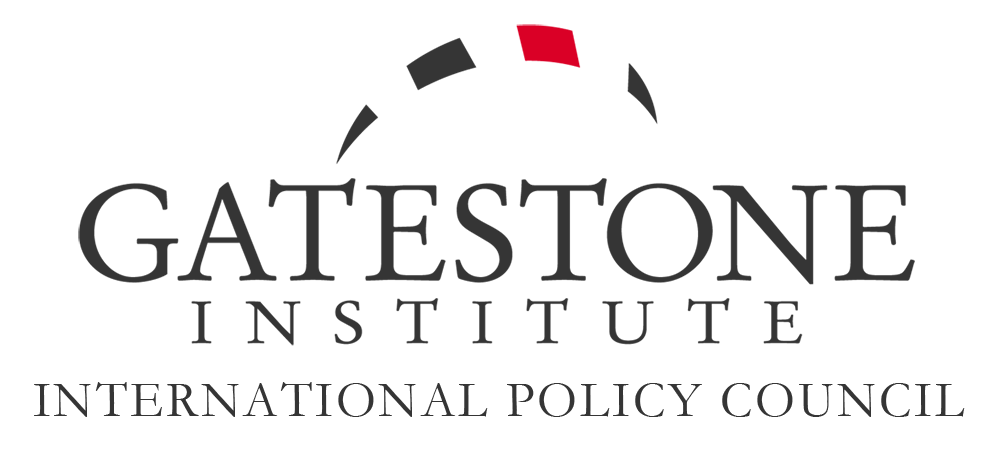In this mailing:
- Khaled Abu Toameh: Why Was a Saudi Attacked by Palestinians?
- Maria Polizoidou: Greece's New Government: Undoing the Damage of Years of Socialist Rule
by Khaled Abu Toameh • July 24, 2019 at 5:00 am
The main reason the Saudi blogger was assaulted and humiliated during his visit to the Al-Aqsa Mosque was incitement.
It came mainly from the Palestinian Journalists Syndicate (PJS), a group affiliated with Fatah, and that has been described by some in the West, and even in Israel, as "moderate" and "pragmatic."
Spitting in the face of a Saudi blogger and cursing him as an "animal" and "Zionist" is not behavior conducive to luring cash from his state -- or any other self-respecting entity -- that refuses to be slapped in the face while providing handouts.

The moment Palestinians noticed Saudi blogger Mohamed Saud at the Al-Aqsa Mosque compound in Jerusalem, they demonstrated to him how they treat their Arab brothers, hurling insults and spitting at Saud. What did the Saudi visitor do to deserve this humiliation and physical abuse? Pictured: Mohamed Saud shields himself from Palestinians spitting at him in Jerusalem, on July 22. (Image source: Twitter video screenshot)
When Saudi blogger Mohamed Saud arrived at the Al-Aqsa Mosque compound on July 22, he apparently thought he would peacefully pray at the site before proceeding to tour the markets of the Old City of Jerusalem.
Moreover, Saud apparently believed that as an Arab Muslim, he would be warmly welcomed by his Palestinian brothers.
He was wrong.
The moment Palestinians noticed the Saudi blogger at one of Islam's holiest sites, they demonstrated to him how they treat their Arab brothers.
Videos that surfaced on social media showed a number of Palestinians hurling insults and spitting at Saud. One Palestinian later threw a plastic chair at him as he left the compound.
What did the Saudi visitor do to deserve this humiliation and physical abuse? What crime did he commit to be denounced as "garbage," "animal," and "traitor" and "Zionist?"
by Maria Polizoidou • July 24, 2019 at 4:00 am
The new government took office with an apparent sense of genuine purpose... The new government has transferred the handling of illegal immigration from the auspices of the Ministry for Migration Policy to that of the Ministry of Citizen Protection, treating the issue as a national-security threat.
The Mitsotakis-led government is also reversing its predecessor's course where foreign policy is concerned, stressing a desire to enhance Greek-American relations. One step in illustrating a closer alliance with the administration of U.S. President Donald Trump is the recognition of Juan Guaidó as Venezuela's transitional president in his battle against Nicolás Maduro. Another step is strengthening ties with Israel.
Greece now has a single-party government... which means that it will not be forced to compromise with Marxists and Social Democrats. This situation bodes well for the major economic and social reforms that Mitsotakis... was elected to undertake.
Mitsotakis deserves a chance at home and abroad to prove that opening up the economy while clamping down on forces that threaten Greek democracy can undo the damage done by years of socialist rule.

Greece's new prime minister, Kyriakos Mitsotakis, has the chance to prove that opening up the economy while clamping down on forces that threaten Greek democracy can undo the damage done by years of socialist rule. Pictured: Mitsotakis (foreground left) is sworn in as prime minister on July 8, 2019, at the Presidential Palace in Athens. (Photo by Milos Bicanski/Getty Images)
The July 7 elections in Greece have ushered in a new era of promise, with the victory of the center-right New Democracy Party leader, Kyriakos Mitsotakis, over the incumbent prime minister, Alexis Tsipras, head of the left-wing Syriza coalition.
The vote represented the Greek people's frustration and disgust not only with the failures of the Syriza-led government, which wreaked havoc on the economy and state institutions, but with the accompanying widespread corruption and anarchy that overtook the country.
|
|



No comments:
Post a Comment